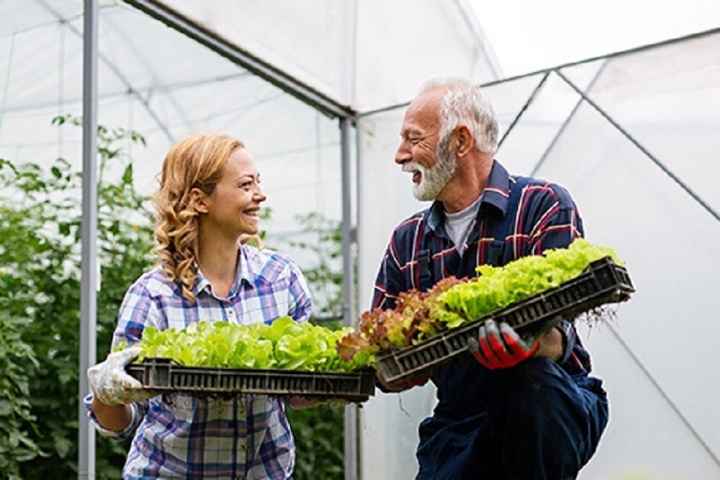

Groupe BPCE’s economic research
Groupe BPCE’s economists, experts in their respective fields, regularly publish studies on issues related to Groupe BPCE’s activities. Consult their latest research:
Consult all our publications
The research studies are grouped together by topic: savings & investments, real estate, companies, sports economy, buying behaviors, life changes, caregivers, farming and macroeconomics.
Savings & Investments

Economic research
Rendezvous for Savings & Investments, April 2025
23/04/2025
-
2024 review of Savings & Financial Investments – Outlook for Savings as at December 2024
-
Financial investments flows and arbitrage decisions should gradually return to normal – December edition of Rendezvous for Savings & Investments
-
Review of the third quarter 2024 – Outlook for savings in September 2024
-
Outlook for savings and financial investments, June 2024
-
The outlook for savings and financial investments as at March 2024
-
Environment for savings and financial investments in 2023
-
Back to normal in 2024, after asset reallocations at record levels in 2023? January 2024 edition of Rendezvous for Savings & Investments
-
Trends in savings and investment – Savings environment in Q3 2023
Real estate

Economic research
Focus on 2025 review and 2026 outlook on the french private rental market – November 2025
19/11/2025
-
Market review and Outlook for residential real estate in France – May 2025 Real Estate Forum
-
Households continue to adopt a wait-and-see approach to housing – Economic update, May 2025
-
Housing: between motivations and frustrations – Economic update, January 2025
-
Review of recent trends and the Outlook for residential real estate in France – December 2024 Real Estate Forum
-
A housing market ‘running out of steam’ despite an upturn in the economy at large – Economic update, July 2024
-
Housing: tense real-estate markets – Outlook for Housing, April 2024
-
The seller, that unknown variable in the housing market – February 2024 Real-estate Forum
-
Economic situation and outlook for 2024 – December 2023 Real-estate Forum
-
Housing, a shock to activity and a decline in prices – December 2023 economic outlook
-
European commercial real estate: how far will prices fall? – Natixis CIB Research, August 2023
-
What lies ahead for the residential real estate market in 2023-2024? April 2023 Real estate forums
Sports economy

Economic research
Sport: a key economic, social, and regional driver – BPCE L’Observatoire research, December 2025
11/12/2025
-
Elite athletes and the sports industry – July 2024 edition of BPCE L’Observatoire
-
The sports industry: the challenges of a champion – January 2023 edition of BPCE L’Observatoire
-
Local & regional authorities and sports – Mars 2022 edition of BPCE L’Observatoire
-
The sports industry on tenterhooks – February 2021 edition of BPCE L’Observatoire notebooks
-
The sports economy faced with the health crisis – June 2020 edition of BPCE L’Observatoire
-
The sports industry takes its bearings – February 2020 edition of BPCE l’Observatoire
Buying behaviors

Economic research
New boom in e-commerce activity and mobile payments – BPCE Digital & Payments Barometer survey, January 2026
22/01/2026
-
Black Friday 2025, highly favored by senior citizens – BPCE Digital & Payments Barometer survey, December 2025
-
Consumption: young people in their dual role of influencers and trailblazers – Digital & Payments Barometer Survey, September 2025
-
Between budget constraints and personal desires, consumer spending holds firm – BPCE Digital & Payments Barometer survey, January 2025
-
Black Friday 2024 consumption in France BPCE Digital & Payments Barometer Survey, December 2024
-
Summer consumer spending in France – BPCE Digital & Payments Barometer survey, summer 2024
-
The new consumer trends adopted by the French in the face of persistent inflation – BPCE Digital & Payments Barometer survey, January 2024
-
The French are adjusting to enduring inflation – BPCE Digital & Payments Barometer survey, June 2023
-
French consumer purchasing behavior under the microscope – BPCE Digital & Payments Barometer survey, January 2023
Life changes

Economic research
BPCE Assurances Barometer survey: living environments, health, savings, retirement, etc – BPCE Assurances Barometer Survey, March 2025
24/03/2024
-
Health, money, retirement: the French depend upon themselves above all – BPCE Assurances Barometer Survey, March 2024
-
48% of French people save for their retirement – BPCE Assurances Barometer survey of March 2024
-
The French want to engage in more physical activity – BPCE Assurances Barometer survey, March 2024
Macroeconomics

Economic research
Macroeconomic forecasts for 2025-2026 – Summary report, August 2025
14/08/2025
-
2024 economic review and outlook for 2025 – Summary report, January 2025
-
Economic review of 2023 and outlook for 2024 – Summary report, January 2024
-
The socio-economic impact of covid-19
-
Forecasts for 2019-2023: end of the economic cycle without a recession? – May 2019 study
-
Regional local public investment dynamics – January 2019 economic outlook



